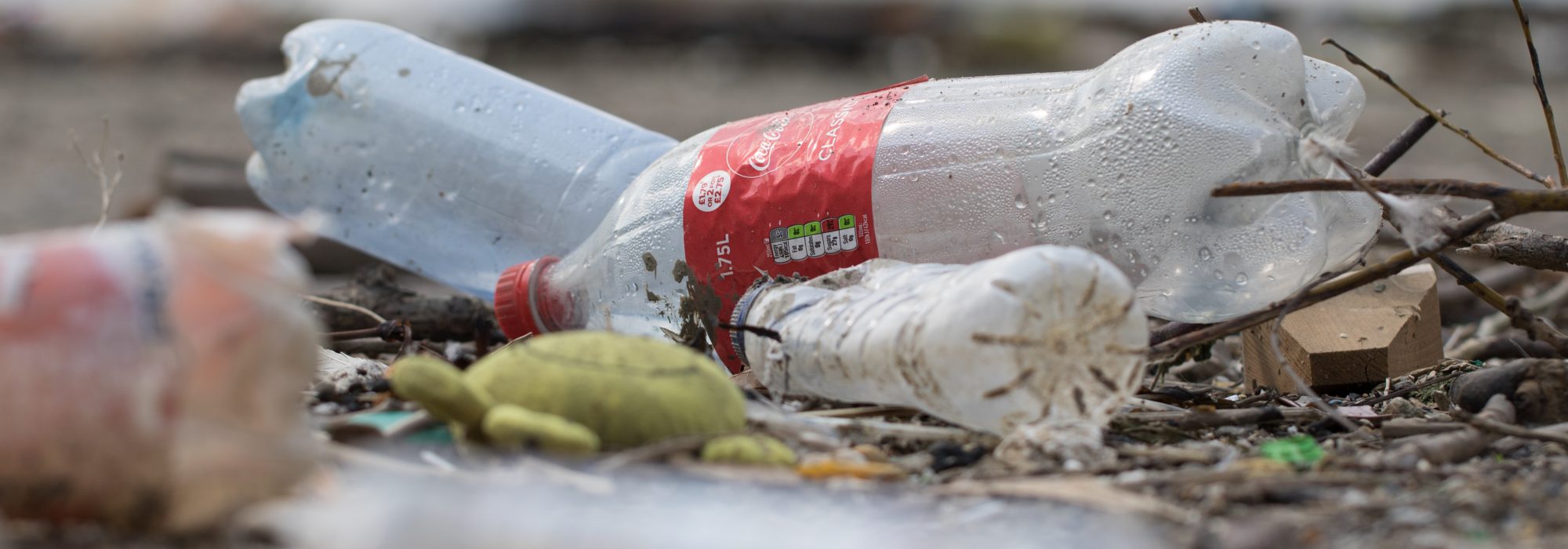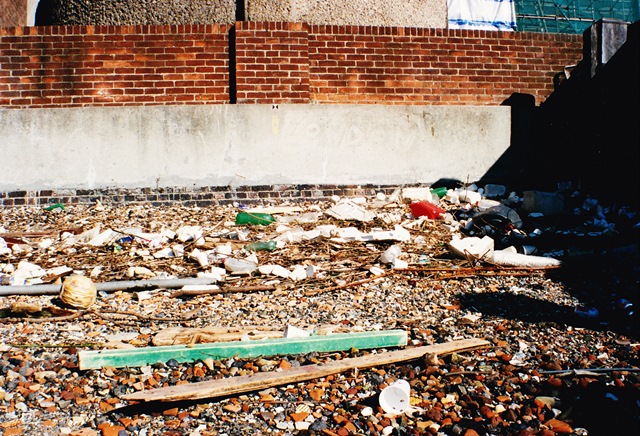Is plastic pollution our generation’s legacy?
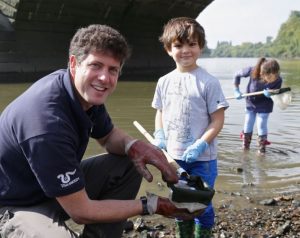
By Chris Coode, Deputy Chief Executive & Programmes Manager
Taking in the city’s skyline while the Thames laps around my ankles is one of the most incredible and surreal experiences I’ve had working at Thames21 over the past decade. In that time I’ve got to know London’s rivers really well, and found my favourite spot; a secluded, peaceful stretch of the Ravensbourne in south east London near my home.
During this time I’ve also got to know London’s river rubbish really well – and I’ve noticed a change in the type of litter we find on our river clean ups.
That change is an increase in the number of plastic bottles.
Bottles float around in the water and often accumulate in the nooks and crannies at the edges of rivers; get trapped in plants or along the strandlines in dock entrances.
BELOW: This picture of the World Heritage site at Queenhithe Dock was taken in 2001. It shows the strandline where floating litter normally collects, strewn with polystyrene packaging along with some larger plastic bottles.
BELOW: Queenhithe Dock in 2013, twelve years on: the litter content has changed dramatically. Smaller drink bottles, particularly the clear plastic water bottles, are far more prevalent.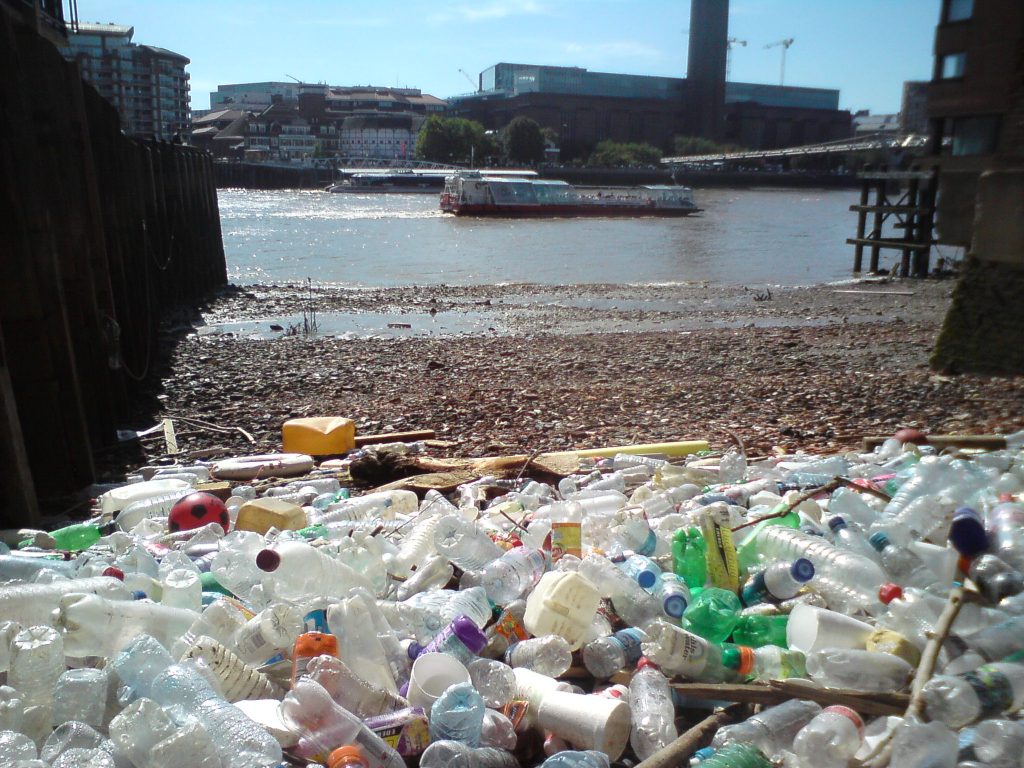
This isn’t a terribly scientific comparison; for starters, litter accumulations are influenced by the wind, the tide and various other factors. But the photos do highlight how our consumption habits are changing and that the river is now home to a vastly greater number of bottles than it was a decade ago.
Better understanding of the type of litter in our rivers means we can target our efforts to have a greater impact.
This is why our Thames River Watch project, launched in 2013, is generating far more comprehensive data about the rubbish found in the Thames. Over time we want to be able to detect changes in composition and quantity of the litter in the river, identify where this litter is coming from and how it is getting into the river.
Between 1994 and 2014, the UK’s bottled water market virtually quadrupled; growing from 690 million litres to almost 2.6 billion litres. Plastic is cheap, durable and lightweight, making it the perfect packaging material, yet it doesn’t biodegrade – it simply breaks into smaller pieces. We need to stop treating it as a disposable material. If recycled, it can be turned into new containers or packaging, rather than systematically finding its way into our waterways and oceans and the stomachs of sea birds, fish and marine mammals.
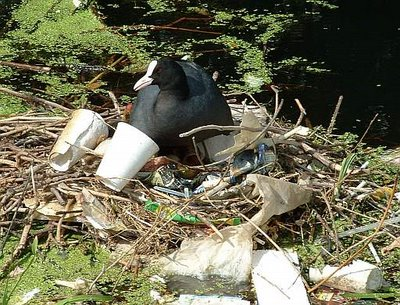
In March 2016, The Guardian posted this story about 29 sperm whales washed up on various North Sea shores. Investigations carried out on 13 of them showed that they had starved because their stomachs were filled with plastic.
Bottles, lids and other plastic are now found throughout our local wild spaces.
You can stop this from happening with these Top Tips!
1 – Recognising everything is connected – and that means appreciating how our rubbish negatively impacts on wildlife and the health of our natural environment. Check out and share this WWF video for inspiration.
2 – Reducing waste – Invest in a reusable bottle or cup to help curb your waste on the go such as that all-important morning coffee!
3 – Leading a waterway clean up – we’ll give you all the training you need to safely host a spring clean of your local waterway. You can also join our Thames River Watch to monitor the health of the capital’s main river. Simply click here to register your interest in our programme or trainings.
4 – Encouraging community projects – like the Refill Bristol project which encourages cafes, shops, hotels and other businesses to offer water bottle filling points free of charge.
5 – Innovating ways to reuse or recycle plastic already in the environment – like this novel idea from Riz Boardshorts who are using recycled plastic found in Thames21 clean ups to create swimwear.
6 – Showing your support – Here are two awesome campaigns we think you’ll want to be part of:
Cleaner Thames – for cleaner London rivers #CleanerThames
OneLess – for a plastic bottle-free London #OneLess
